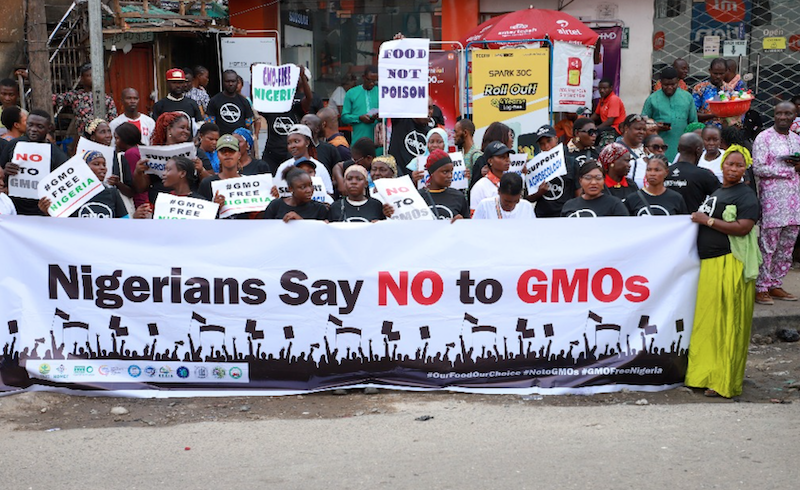The Federal Government has clarified that the introduction of Genetically Modified Organisms (GMOs) and their products in Nigeria is not intended to poison citizens but to strengthen food security and improve nutrition.
Dr Rose Gidado, Director of the Agricultural Biotechnology Department at the National Biotechnology Research and Development Agency (NBRDA), said this on Wednesday during a sensitisation workshop in Abuja.
The workshop was organised for directorate officers of the Federal Ministry of Health and Social Welfare (FMOH/SW) to enhance their understanding of biotechnology and its role in national food security.
The event was organised by the Open Forum on Agricultural Biotechnology (OFAB), Nigerian Chapter, in collaboration with NBRDA. Gidado said the perception that GMOs were harmful or poisonous was misleading and unfounded.
She stressed that Nigerian scientists involved in the field were responsible professionals who would never endanger the lives of fellow citizens.
“We cannot give poison to our own people. Many of us, and the professors working in this field, are Nigerians, responsible scientists who are also consumers,” she said.
She added that GMOs had a 30-year history of safe use in more than 45 countries. Nigeria, she noted, was adopting the technology with all safety precautions in place.
“Safety is never compromised. Our National Biosafety Management Agency (NBMA) was established to regulate biotechnology practice in the country,” she assured.
Dr Angarawai Ignatius of the International Crops Research Institute for the Semi-Arid Tropics (ICRISAT-NG) emphasised that with shrinking land resources and a growing population, biotechnology offered sustainable solutions for increasing food production.
He explained that genetic modification strengthened weak traits in crops, making them more resistant to diseases, pests, and climate stress, without posing risks to human health.
Prof. Abdullahi Mustapha, Director-General of NBRDA, represented by Dr Oyedele Julius, Director, Environmental Biotechnology and Bioconservation Department, stated that Nigeria’s research and regulatory frameworks were aligned with international scientific standards.
He noted the country had already approved insect-resistant and drought-tolerant maize varieties to address climate and pest challenges.
“Health, nutrition, and economic resilience are closely linked. Reduced crop losses mean a more stable food supply, lower prices, and fewer nutrition shocks.
“The safe deployment of biotechnology aligns with President Bola Tinubu’s Renewed Hope Agenda on food security and economic revival,” he said.
He added that the use of fewer pesticides also protected rural communities and agricultural workers.
Nigeria’s framework for biotechnology, he said, is “robust, transparent, and science-driven,” involving partnerships with national research bodies, biosafety agencies, and global partners.
Mrs Olubunmi Aribeana, Director of Food and Drug Services at FMOH/SW, represented by Dr John Atanda, said the workshop was aimed at enhancing participants’ understanding of biotechnology, biosafety protocols, and the implications for national food security.
She stressed the ministry’s commitment to ensure that biotech products underwent rigorous risk assessments, including allergenicity, nutritional profile, long-term health impact, and environmental safety, before approval.
“Every GMO product will follow standard regulatory procedures such as labelling and traceability to reinforce consumer trust,” she added.
Prof. Emmanuel Kwon-Ndung of the Federal University, Lafia, acknowledged that some resistance to GMOs stemmed from scientists themselves, but often not based on scientific evidence.
“Much of the opposition is rooted in political, ethical, or social concerns. We need to keep communicating the science to dispel these misconceptions,” he said.
The workshop is expected to improve awareness and understanding of modern biotechnology and biosafety among ministry officers.
It also aims to build public confidence in Nigeria’s regulatory processes and promote evidence-based policymaking in health and agriculture. The debate over GMOs comes at a time of rising food insecurity in Nigeria.
With the population projected to grow well beyond the current estimate of more than 240 million, experts argue that traditional farming methods alone may not meet future food demands.
Biotechnology is being promoted as a viable solution to increase yields, reduce losses, and adapt to climate-related pressures.


